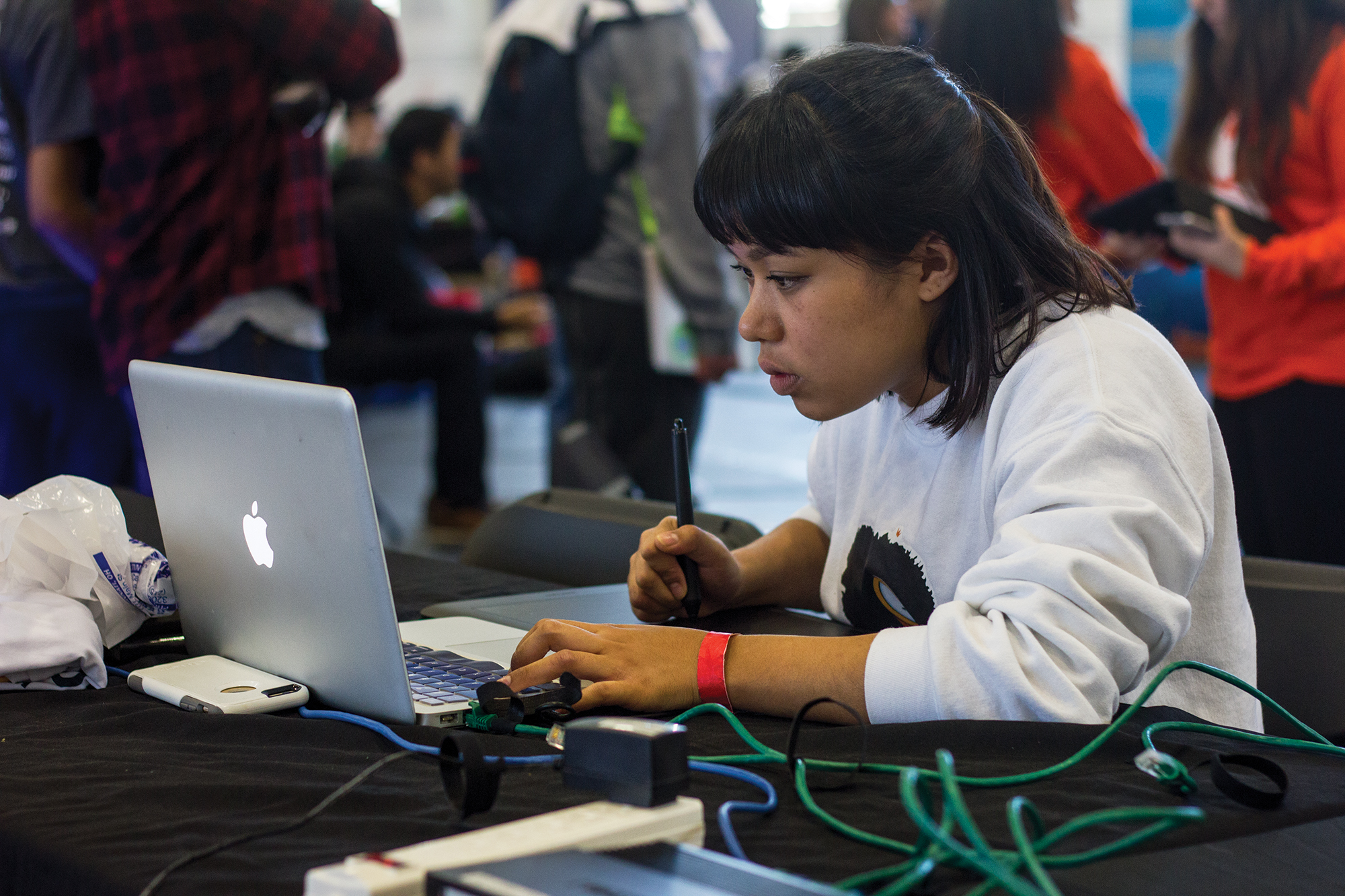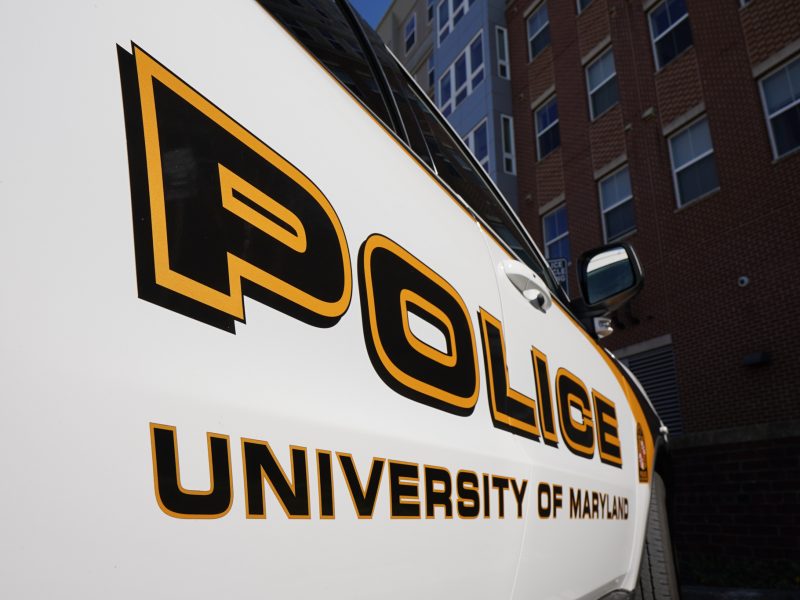This weekend, students from around the country rode roller coasters, learned new languages, played in rock bands and tested out brand-new video games, all without leaving the campus — or even the building.
The University of Maryland hosted its third Bitcamp, a 36-hour hackathon, in the Reckord Armory from Friday to Sunday. Students from this university and other schools across the United States designed and built tech-related projects including apps, video games and virtual-reality programs. Throughout the weekend, they shared their work with peers, networked with mentors and sponsors such as IBM and Bloomberg and competed for prizes ranging from Amazon gift cards to computer tech.
Despite an hour delay for the opening ceremony due to wiring problems that caused a fire code issue, which Bitcamp organizers were able to fix within a few hours, the hackathon launched Friday night with about 1,100 participants — fairly even with last year’s turnout — and about 100 more organizers, volunteers, sponsors and mentors.
“With a huge event like this, there’s always issues, but I think it speaks to the closeness of this team that we were able to work together and get things done quickly,” said junior computer science major Anthony Castrio, one of Bitcamp’s directors. “It kind of speaks to the spirit of the event as well. That’s what it’s all about: solving problems, finding solutions.”
This year, about 35 percent were first-time hackers, about half were students from this university and about 25 percent of the hackers were women — the highest percentage yet, organizers said.
During his keynote address, former university student and Oculus VR CEO Brendan Iribe said his journeys with tech began in his dorm freshman year, where he met the two friends with whom he would ultimately found his virtual reality technology company.
“It all started here, at the University of Maryland, at 19 years old. … When you’re 19, you’re fearless,” Iribe told hackers. “You guys are all fearless. So you should go out and create the next best company and you should do it starting here.”
Oculus loaned out 10 of its new consumer-version VR headsets for use at this year’s Bitcamp, which several student teams used in their projects.
Sophomore computer science majors Prasannasai Meruga and Chris Castellano worked on a team that designed a roller coaster simulator. The project used the Oculus technology and a desk chair rigged with a piston to lean players forward and backward, mimicking the way the coaster was moving onscreen.
Castellano said virtual reality allows for unique opportunities, and a hackathon is great place to try out new ideas.
“There’s so many likeminded people here,” Meruga said. “Everyone is grinding away on their own projects, everyone wants to go around and check out what people are doing.”
Daniel McLaughlin and Simon Milburn, both senior computer science majors, and Brian McLoughlin, a senior geographical sciences major, spent the weekend working on a virtual-reality educational program aimed at helping people study new languages. They call it “Oculingo.”
“When I was in high school, I learned Spanish in a textbook and it was so boring,” McLoughlin said.
The team wanted to go beyond traditional methods to help people learn in a way Milburn said would be accessible and “keep people hooked.” With the program they developed, language learners will be able to interact with objects in a space and learn to identify them in a foreign language — they started with Spanish. Then the program will quiz users to see if they can pronounce the word correctly.
But virtual reality is not the only thing people were hacking.
Gabby Abella won the Color War design competition this year. Four participants were tasked with designing a gadget that would be popular 50 years from now and show what promotional posters, a launch event and a world where this gadget had taken over would look like. Abella designed a teleporter.
This was the junior studio art major’s first hackathon, and she said though the event seemed more geared toward programmers and developers, there were cool opportunities for designers, too.
“It’s a good incubator for ideas and energy,” she said.
Vaibhav Bedi, a senior computer science major from Kent State University, worked on a phone app designed to help people find certain kinds of restaurants in a particular city. He said he has been to five hackathons and Bitcamp is the largest.
“I love hackathons. It’s a great environment and the best place to learn a lot and work for two days,” Bedi said. “I’m graduating this semester, and I will miss hackathons.”
Amber Mirza, a junior computer science major and Bitcamp marketing director, said the weekend was “amazing” overall.
“We had some of the best hacks I’ve ever seen, especially in VR,” Mirza said. “All of the VR people were working together, helping each other. … Sometimes hackathons can be very competitive; there was a very collaborative and encouraging spirit this weekend. It was great.”



